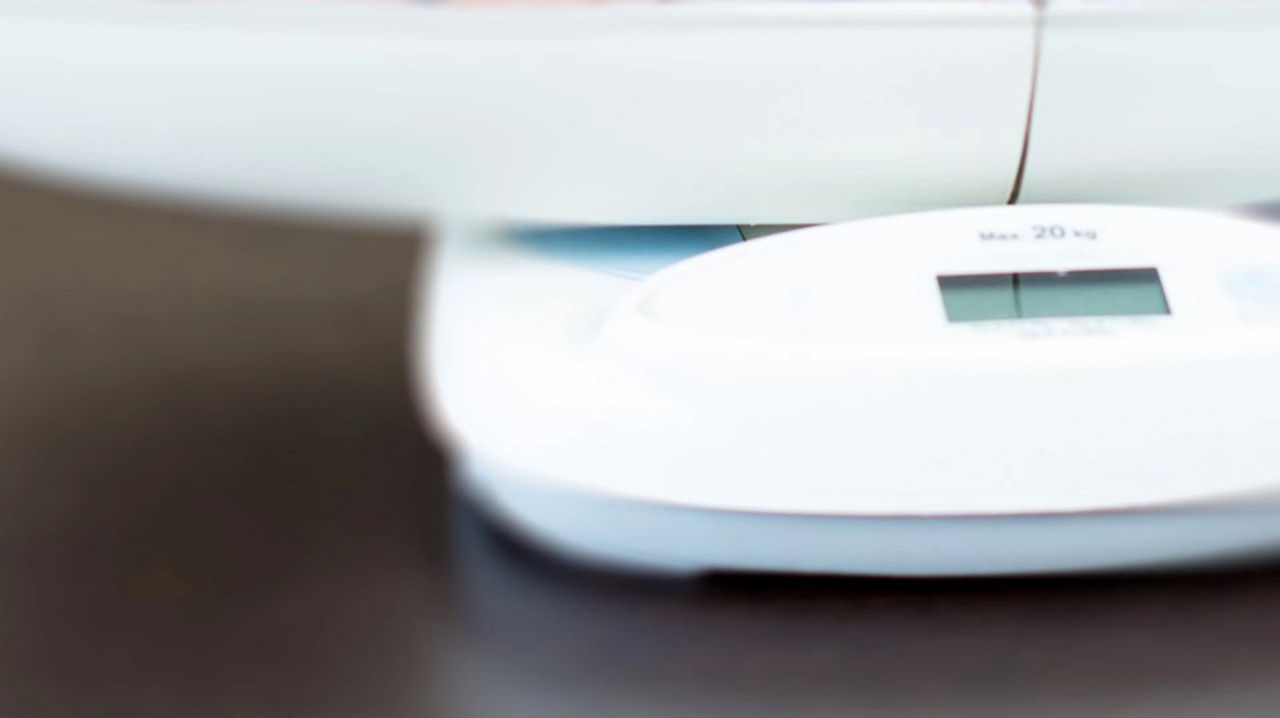Reflux occurs when your baby’s feed comes back up from his stomach into his throat and mouth.
Reflux in babies
?ts=1701283011629&dpr=off)
What causes reflux?
As adults we are able to control this as we have a muscle called the sphincter muscle which traps food in our stomachs and prevents it from coming back up. The reason some babies bring back up their feed is because this muscle is not fully developed and so have no way of keeping down their feed. During the first year of life this sphincter muscle will gradually develop so the degree of reflux will decrease as your baby grows. Roughly half of young babies experience reflux but by 10 months this number drops to one in twenty babies.
A little regurgitation is expected in babies, however if your baby is bringing up a lot of their feed quite frequently this may indicate reflux.
If you notice that your baby is bringing back up a little of his feed, don’t worry. This is known as posseting and is quite common in young babies. A little regurgitation is expected in babies, however, if your baby is bringing back up a lot of his feed quite frequently this may indicate that your baby has reflux.
It is a good idea to speak to your healthcare professional if your baby shows the following symptoms:
- The reflux regularly occurs, more than 5 times a day
- Your baby is very distressed and often vomits and coughs after feeding
- They do not show a steady weight gain
Specialised products are available whether breastfeeding, combination feeding or bottlefeeding to help make it easier for babies to keep down feeds. Talk to your healthcare professional for advice.
Contact our team of expert feeding advisors if you think your baby has reflux and would like some more advice.
Related articles

Get in touch with our Careline experts
Our nutritionists and feeding advisors are always on hand to talk about feeding your baby. So if you have a question, just get in touch
Important notice
Breastfeeding is best for babies and provides many benefits. It is important that, in preparation for and during breastfeeding, you eat a varied, balanced diet. Combined breast and bottle feeding in the first weeks of life may reduce the supply of your own breastmilk, and reversing the decision not to breastfeed is difficult. The social and financial implications of using an infant formula should be considered. Improper use of an infant formula or inappropriate foods or feeding methods may present a health hazard. If you use an infant formula, you should follow manufacturer’s instructions for use carefully – failure to follow the instructions may make your baby ill. Always consult your doctor, midwife or health visitor for advice about feeding your baby.



